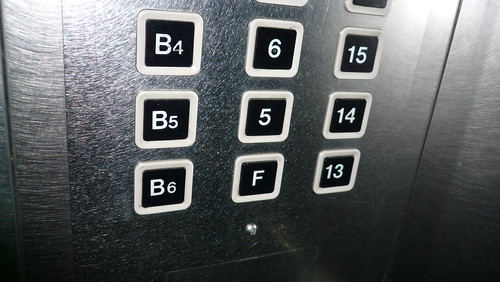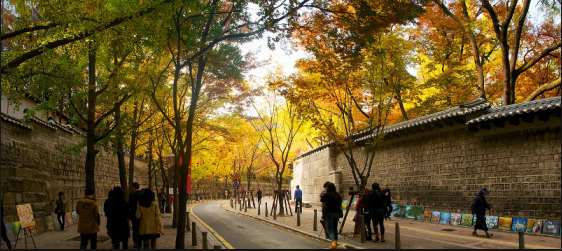There are many different kinds of superstitions and myths around the world, such as: breaking a mirror resulting in bad luck, the number 13, and never crossing after a black cat. Although these are just words and have no scientific basis whatsoever, many people still believe in them. Superstitions are often connected to culture and traditions. Therefore, there are many particularly interesting beliefs in Korea as well, which was highly influenced by a local religion called "mu," that has been developed based on shamanism since the Gojoseon period. Read on to find out the origin of 7 Korean superstitious beliefs and meaning behind them.
1. Number 4 Is Ominous

In the West, lots of people suffer from ‘triskaidekaphobia’, or fear of the number 13. The number 13, and Friday the 13th, have been signs of bad luck for centuries. There are several different theories that explain the origin of triskaidekaphobia, but it is mainly explained in relation to the Bible. It is hypothesized that the number 13 came to symbolize evil because the 13th disciple of Jesus, Judas, who attended the Last Supper, handed Jesus over to the enemy. On the other hand, in Korea, the number 4 is considered ominous. This is called Tetraphobia, and it is a superstition that appears not only in Korea but also in Asian countries which have a history of using Chinese characters. This is because, the Chinese word for number 4 (四) sounds the same as the word for “death (死)”. That is why Koreans associate the number 4 with death and regard it as unfortunate. For this reason, many buildings in Korea indicate the fourth floor as F or omit the fourth floor altogether. In particular, death-sensitive hospitals and accommodations such as hotels often avoid marking the fourth floor.
2. Never Write One’s Name with Red Ink!
What would it mean to write in one’s name in red ink for Koreans? Many Koreans believe that if someone’s name is written in red, death will come to that person very soon. It is a superstition that is still widely believed to the extent that many Koreans have experienced being scolded by their parents for writing their name with a red pen when they were young. There are various theories about the origin of this superstition, but the most influential is that Qin Shi Huang, who wanted to monopolize the color red, which has been treated as a noble color, symbolizing dignity, passion and joy since ancient times, banned the use of red names other than himself. There is also a theory that it is a superstition that arose after the Korean War, which seems to have originated from the fact that the names of soldiers who died during the war were written in red to distinguish them from the survivors and inform the bereaved families. Therefore, even today, there is a superstition that names written in red mean death.
3. Do Not Sleep in a Closed Room with a Fan on
Although it has already been scientifically proven to be false, many Koreans believe that sleeping in an enclosed room with a fan on will lead to death due to lack of oxygen. Also known as Fan Death, this myth is believed to have been spread by the government during the military dictatorship in 1980 to reduce people's electricity use. In fact, at the time, the media reported that people suffocated from hypoxia while sleeping in a closed room with a fan turned on. Due to the media influence, this myth has been spread among citizens. However, in reality, turning on the fan does not change the amount of oxygen in the air. This is because it has been scientifically proven that hypoxia (lack of oxygen) or increased carbon dioxide (hypercapnia) levels cannot occur because the oxygen ratio in the air is always kept constant as long as the room isn’t fully air tight. So, use a fan on hot summer nights. If you feel uneasy to ignore this myth, set a timer!
4. Setting Foot on a Threshold May Bring Misfortune.
There is an old saying in Korea that if you step on the threshold, or doorframe, you will be unlucky. This superstition originated from the old funeral culture of Korea. Korean people from long ago regarded the threshold as the boundary between this world and the underworld. Traditional Korean funerals were developed based on Confucianism and indigenous shamanism. People believed that if everything was not properly resolved, the soul of the deceased would not be able to go to the afterlife and would wander in this world forever. It is said that after three days, when the dead went to the burial ground, people put a gourd bowl on the threshold and broke it with a coffin representing abandoning the lust for the dead. It is said that ancient people thought that the threshold was regarded as the boundary between this world and the afterlife and that living people should not touch it recklessly.
5. Do Not Wash Your Hair on Special Days
On important days, Koreans do not wash their hair. This is because there is a belief that says washing your hair on important days will wash away your fortune. Especially on the first day of the new year which symbolizes a new beginning and hope, Koreans do not wash their hair, as it’s believed to wash away their luck for the year. Likewise, adults often tell their children not to wash their hair on the day before an exam or employment interviews as to not wash away all the knowledge they have gained from studying for the exams or interviews. Therefore, many students do not wash their hair before the college entrance exam.
Similarly, Koreans avoid eating seaweed soup right before some important exams. This is because there is a Korean expression that says “Slip on the exam,” which means one failed the exam. Therefore, Koreans do not eat slippery seaweed before an exam. However, as there are many people who got a good grade even after eating seaweed soup, showing that our test results seem to depend on individuals’ efforts, and not what you eat the night before.
6. Do Not Cut Your Nails or Toenails at Night
In ancient times, people believed that nails or toenails contained the essence or spirit of a person. Like how the Inca people kept their nails at home or in churches to use in ceremonies to resurrect their souls, Koreans in the olden days also believed that if they cut their nails or toenails at night, rats would eat the clipped nails and transform their appearance to act as if they were the person whose nails they ate. This is a superstition which is famous enough to be covered in fairy tales. In the past, there were no nail clippers so cutting ones nails with scissors or a knife at night would even take the risk cutting their fingers. In particular, in the old days before electricity, people clipped their nails under a lantern. Therefore, there is a myth that these stories made children reluctant to cut their nails at night to avoid unpredictable injuries. Moreover, there is a theory that this superstition derived to ensure people tidied up well after cutting the finger or toenails.
7. If You Are a Couple, Reconsider of Walking Down Deoksugung Path with Your Partner.

Deoksugung Path, also called Jeongdong street, was built in 1921. After independence, this path became a symbol of parting. There are several hypotheses on the origin of this myth. First, back in the day, the Seoul Family Court and the Supreme Court were located at the north end of Deoksugung Path. Therefore, Deoksugung Path became a symbol of separation as it was a common route married couples would walk before getting a divorce. Nowadays, even though the Seoul Family Court and Supreme Court has even relocated, this myth still remains. The second hypothesis is that the souls of the court ladies who became a concubine through Seung-eun (bedding the king) and no longer received the king’s attention separated as lovers. Deoksugung was originally called Gyeongwungung as a palace during the Joseon Dynasty. It is said that there was a dwelling place for concubines who did not receive the king’s attention. It seems to be the beginning of the myth that the souls of the concubines who died lonely wander around the Deoksugung Path and break up couples walking along the Deoksugung Path.
Although none of these has been scientifically proven, many people feel a bit uncomfortable to ignore the superstitions since they have been passed on through generations. Superstitions that are directly related to one’s fortune and deaths even seem terrifying. Still, everything is up to you to, believe it or not. Just remember; in order to avoid any bad luck, think about the “lucky 7” superstitions!

